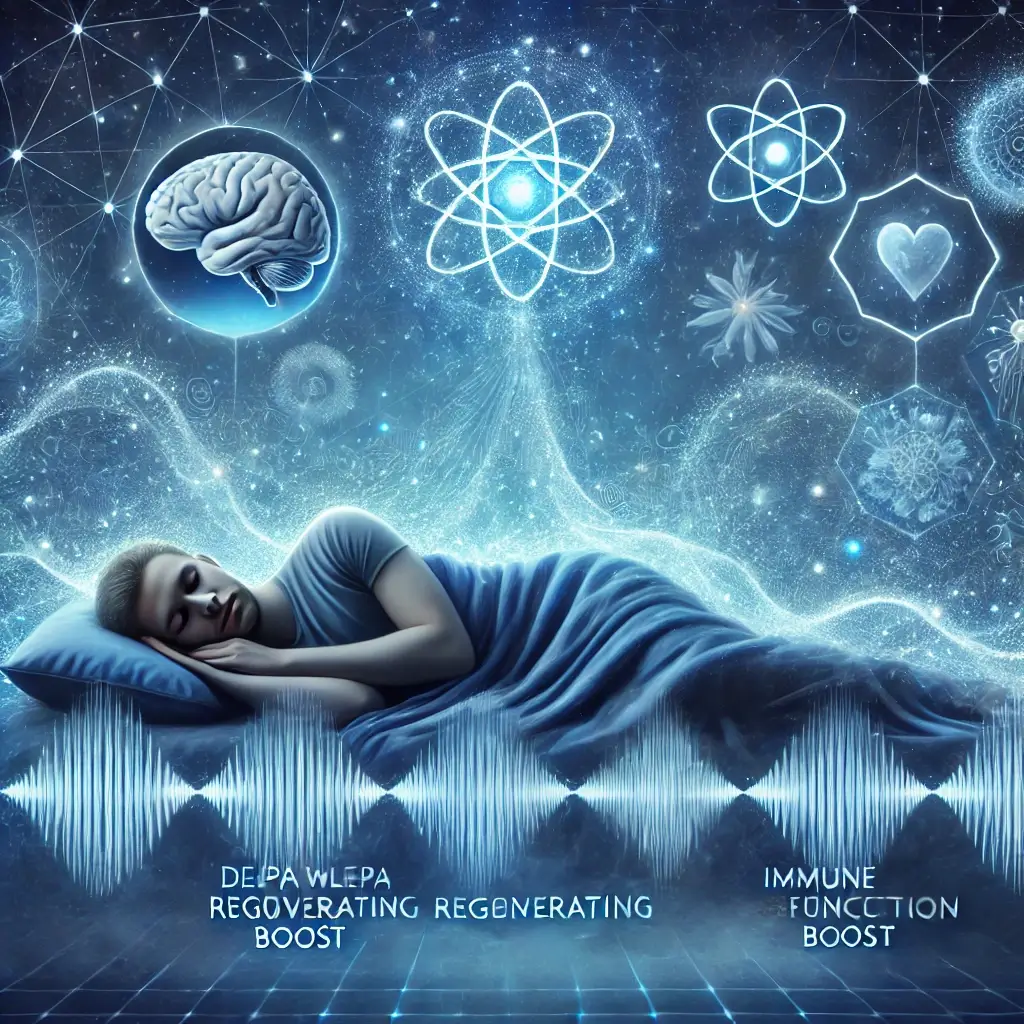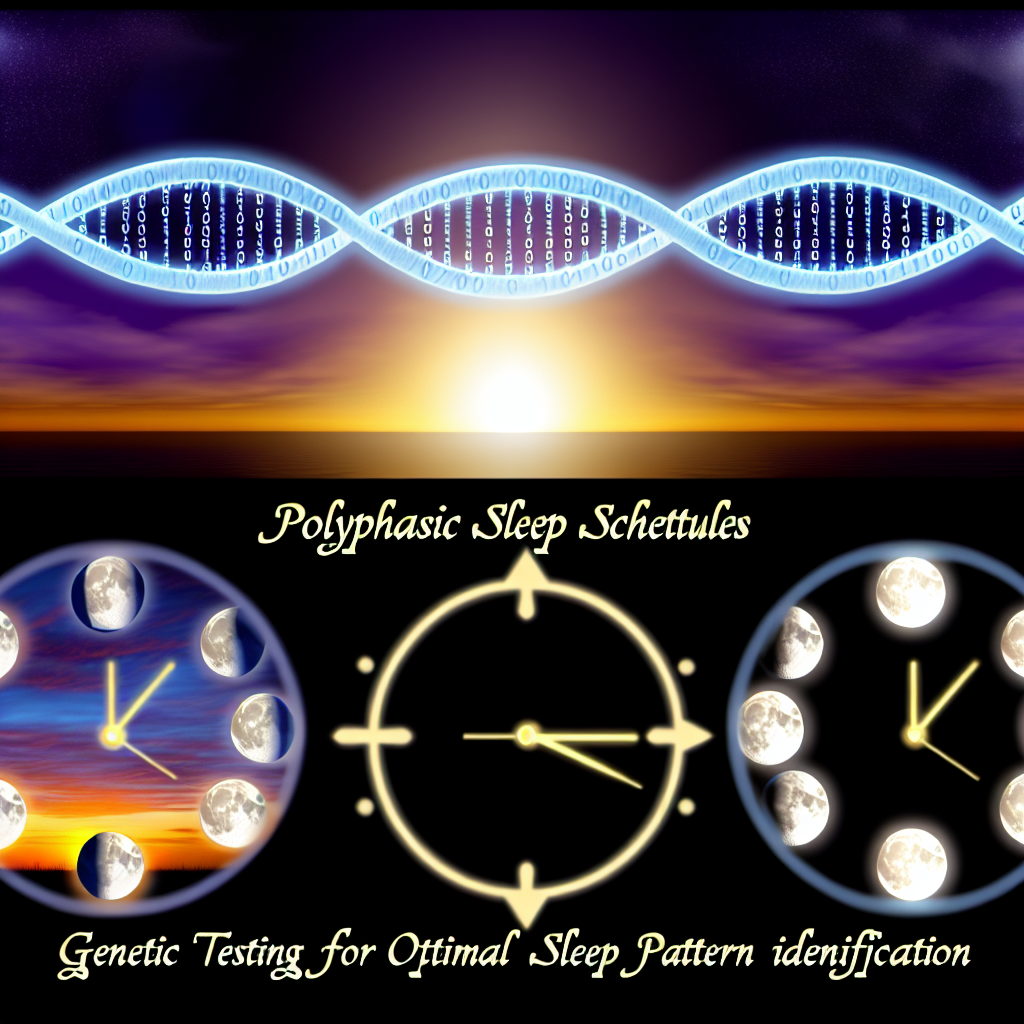The Foundation of Health and Wellness
Sleep is more than a nightly reprieve; it is the foundation of physical, emotional, and cognitive health. Among the sleep stages, deep sleep marked by delta brainwaves is critical for restoration and rejuvenation. Delta waves, with their slow frequency of 1-4 Hz, represent a profound state of neural inactivity, allowing the body and mind to recover from daily exertions. However, despite its importance, many individuals struggle to attain sufficient deep sleep due to factors like aging, stress, and modern lifestyle challenges.
Critical Processes During Deep Sleep
During deep sleep, the body engages in crucial repair processes, such as tissue regeneration and immune function enhancement, and memory consolidation. Yet, contemporary pressures, including increased screen time, irregular sleep schedules, and heightened stress levels, disrupt this vital sleep stage. This article explores the science behind delta wave activity and presents evidence-based strategies for enhancing deep sleep, shedding light on emerging interventions and their potential impact.
Understanding Delta Waves
Delta waves, first identified through electroencephalogram (EEG) studies, are the slowest brainwaves associated with restorative sleep. Deep sleep, also known as slow-wave sleep (SWS), is vital for numerous physiological and psychological functions. Research demonstrates that delta wave activity is linked to improved cognitive performance, emotional regulation, and long-term health outcomes (Bjorvatn & Misra, 2004).
Neural Connection and Sleep Research
A notable study published in Neurobiology of Sleep emphasized the role of delta waves in synaptic homeostasis and neural connections, suggesting that they aid in the pruning and strengthening of neural connections formed during waking hours (Tononi & Cirelli, 2014). Moreover, disruptions in delta wave production have been associated with conditions like insomnia, depression, and neurodegenerative diseases, underlining the importance of strategies to promote deep sleep.
Impediments to Quality Sleep
Several factors can impede delta wave activity, leading to inadequate deep sleep: Age: Delta wave activity declines naturally with age, contributing to reduced deep sleep duration in older adults. Stress: Chronic stress elevates cortisol levels, which can interfere with the onset and maintenance of deep sleep. Screen Time: The pervasive use of electronic devices before bedtime suppresses melatonin production, delaying sleep onset and reducing overall sleep quality. Medications and Lifestyle Choices: Certain medications, along with irregular schedules and caffeine consumption, can disrupt the sleep cycle, including deep sleep.
Signs of Sleep Deficiency
Insufficient deep sleep manifests through symptoms such as morning fatigue and impaired concentration, mood disturbances, and increased susceptibility to illnesses, necessitating proactive measures to enhance delta wave activity.
Improving Delta Wave Production
Several interventions, both traditional and innovative, show promise in boosting delta wave production and improving sleep quality:
Essential Sleep Practices
Maintaining a consistent sleep schedule aligns the circadian rhythm with the body’s natural sleep-wake cycle, encouraging deeper sleep stages. Creating a relaxing pre-sleep routine, such as reading or meditation, signals the body to wind down, facilitating the transition into deep sleep.
Optimal Sleep Environment
A cool, dark, and quiet bedroom environment is conducive to high-quality sleep. Tools like blackout curtains and white noise machines, and ergonomic mattresses can help.
Mental and Physical Techniques
Techniques such as yoga, mindfulness, and progressive muscle relaxation reduce stress and enhance the likelihood of achieving restorative sleep.
Advanced Sleep Enhancement Methods
Binaural Beats: Audio therapy using binaural beats and sound frequencies that simulate delta wave patterns has shown potential in small-scale studies (Oster, 1973). Light Therapy: Morning exposure to natural or artificial light helps regulate the circadian rhythm, indirectly promoting deeper sleep at night (Wright et al., 2013). Neuromodulation Technologies: Non-invasive techniques such as transcranial magnetic stimulation (TMS) and transcranial direct current stimulation (tDCS) are being investigated for their ability to enhance delta wave production. Though promising, these techniques are still experimental and require further validation (Marshall et al., 2006).
Looking Forward
Enhancing delta wave activity is an essential step toward achieving restorative sleep and its myriad benefits. While lifestyle changes and relaxation techniques form the bedrock of sleep health, emerging technologies and therapies provide additional avenues for exploration.
Final Thoughts on Sleep Improvement
As research progresses, integrating these strategies into daily routines can help individuals unlock the full potential of deep sleep. Remember, improving sleep is a gradual process that requires consistency and experimentation. For persistent sleep disturbances, consulting a healthcare professional is essential to rule out underlying conditions.
Research Citations
Bjorvatn, B., & Misra, V. K. (2004). Delta waves in sleep. Journal of Clinical Neurophysiology, 21(4), 263-270.
Tononi, G., & Cirelli, C. (2014). Sleep and the synaptic homeostasis hypothesis. Neuron, 81(1), 12-34.
Oster, G. (1973). Auditory beats in the brain. Scientific American, 229(4), 94-102.
Wright, K. P., Jr., et al. (2013). Entrainment of the human circadian clock to the natural light-dark cycle. Current Biology, 23(16), 1554-1558.
Marshall, L., et al. (2006). Boosting slow oscillations during sleep potentiates memory. Nature, 444(7119), 610-613.

Dominic E. is a passionate filmmaker navigating the exciting intersection of art and science. By day, he delves into the complexities of the human body as a full-time medical writer, meticulously translating intricate medical concepts into accessible and engaging narratives. By night, he explores the boundless realm of cinematic storytelling, crafting narratives that evoke emotion and challenge perspectives.
Film Student and Full-time Medical Writer for ContentVendor.com




